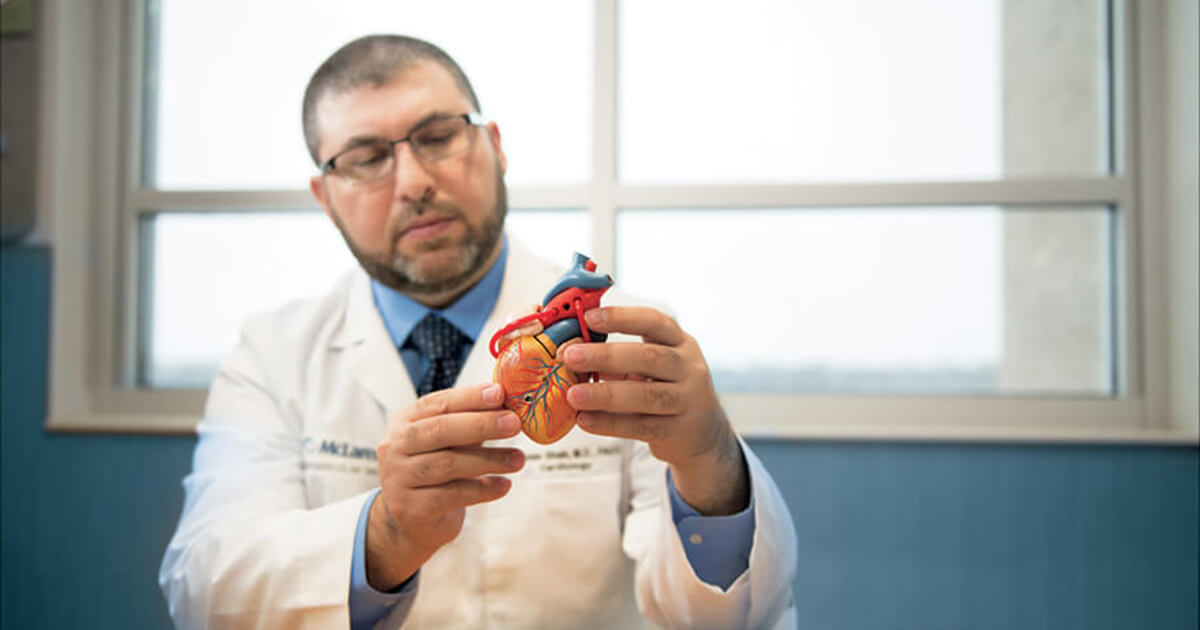
Heart disease is the number one cause of death and disability in the United States, according to the Centers for Disease Control. When nearly one in four Americans die from heart disease, it is important to know your risk.
Heart disease is a term used to describe a large range of heart conditions, including coronary artery disease (CAD), congestive heart failure (CHF), arrhythmia, valve disease, and heart muscle problems called cardiomyopathy.
“Coronary artery disease is the most common type of heart disease in the U.S.,” said Ibrahim Shah, MD, a cardiologist at McLaren Greater Lansing. “A buildup of fats or cholesterol in and on the artery walls affects blood flow to the heart. This can lead to a heart attack, stroke, or even death.”
While there are many different types of heart disease, the disease usually develops from both modifiable and non-modifiable risk factors. Non-modifiable risk factors are beyond your control. These include age, sex, family history, and race.
Modifiable risk factors can be impacted by changes in lifestyle or medication. These include high blood pressure, high cholesterol levels, diabetes, pre-diabetes, smoking, obesity, unhealthy diet, and a lack of physical activity.
“One way to determine your risk for cardiovascular disease is to complete a 10-year atherosclerotic cardiovascular disease (ASCVD) risk estimation screening,” said Dr. Shah. “This test, along with a discussion with your cardiologist, can help us determine if you are at risk for a severe cardiac event within the next 10 years.”
Knowing your risk can help you identify what changes you need to make and when. If you are at a higher risk for heart disease it may be time to make some healthy changes to your lifestyle and diet.
“Some patients feel very overwhelmed by the idea of modifying the foods they eat and activities they do,” said Dr. Shah. “However, we help our patients make a plan that is achievable and then continue to modify it.”
It can be as easy as adding in a 30-minute walk each day or cooking at home and using salt-free seasonings. Some changes can be harder to make, like quitting smoking, but it’s important to know that you are not alone and there are many resources available to you.
“Find a local walking club or participate in a smoking cessation class,” said Dr. Shah. “You will have more success with someone who is going through the same challenges you are, and you can help keep each other accountable.”
McLaren Greater Lansing Heart and Vascular Institute provides a full range of treatments and procedures for cardiovascular care. For more information, click here.
Dr. Shah sees patients throughout the Lansing area, including Eaton Rapids, East Lansing, and Okemos. To schedule an appointment, call 877-296-0111. For more articles on health and wellness, click here.